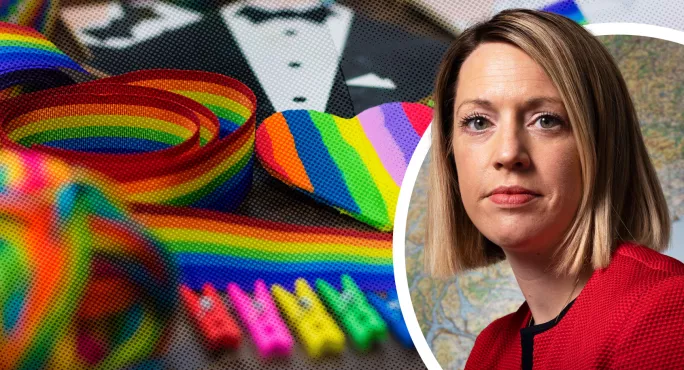A Glasgow school has become the first in Scotland to “fully embed” LGBT-inclusive education across its curriculum, according to the Scottish government.
Castleton Primary, on the city’s South Side, is the first to complete the national implementation and evaluation toolkit, which helps schools in implementing the Scottish government’s LGBT-inclusive education.
The goal is to improve experiences in school for LGBT young people by increasing pupils’ understanding of prejudice, having an early impact on prejudice-based behaviours and improving teachers’ ability to address these topics.
The Scottish government announced its ambition for Scotland to become the first country in the world to have “LGBTI-inclusive education” embedded in the curriculum in 2018.
From 2021, LGBT-inclusive education became a national requirement and the government offered a dedicated package of resources to promote equality and reduce bullying.
The package includes teaching resources to ensure subjects include LGBT identities, issues and history, as well as training teachers to approach topics with confidence and to effectively challenge homophobia.
Castleton Primary has fully completed the staff training, and implemented and evaluated the effectiveness of LGBT education with the help of pupils, parents and teachers.
Following a visit to the school on Tuesday, education secretary Jenny Gilruth said the school’s commitment marked “an important milestone” and that the approach had “already improved experiences for many young people”.
She said that pupils were reporting fewer instances of anti-LGBT behaviour, language and bullying, both in school and the wider community, and added: “It is clear that this inclusive approach to education is already delivering real results for young people.
“Scotland’s education system must support everyone, and it is vital the curriculum is as diverse as the young people who learn in our schools. The inspirational work being undertaken at Castleton and schools like it across the country highlight how inclusive education can help to stamp out prejudice, and I look forward to seeing further progress on this work in the coming months and years.”
However, a survey of more than 1,000 LGBT+ young people published last year and carried out by LGBT Youth Scotland found that 21 per cent did not see themselves represented in classes outside of focused sexual health or mental health lessons.
The survey also found that just 10 per cent of LGBT+ young people rated their experience of school as “good”, down from 11 per cent in 2017.
Jordan Daly, co-founder and director of Time for Inclusive Education, said: “LGBT-inclusive education supports schools to proactively address homophobic, biphobic and transphobic prejudice and bullying, and ensures that young people see themselves, their families and the world around them in what they learn.
“We have been privileged to work with Castleton Primary School to take this forward, and are encouraged by reports from pupils and teachers about the positive impact that this has had on their school experiences.”




